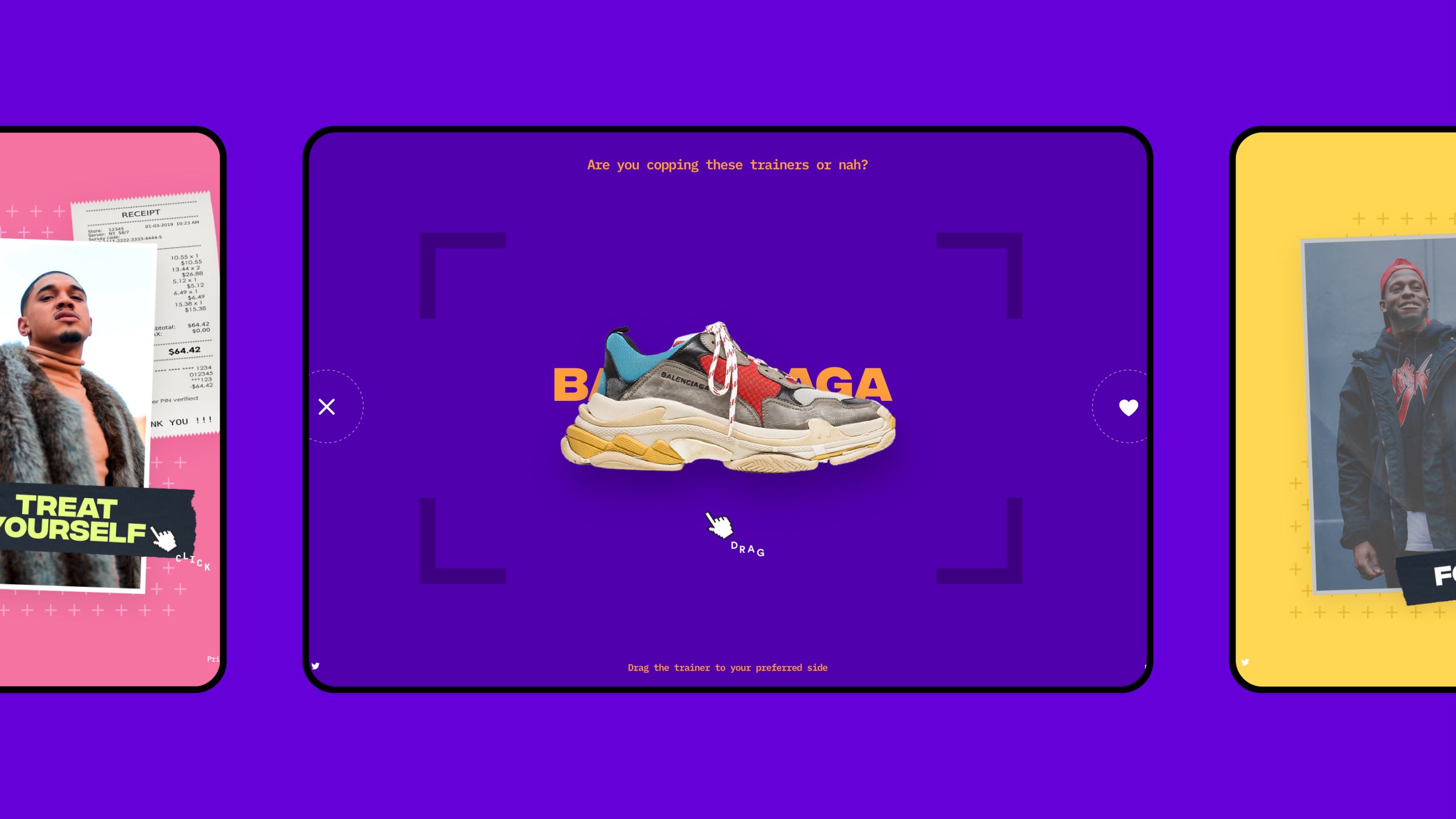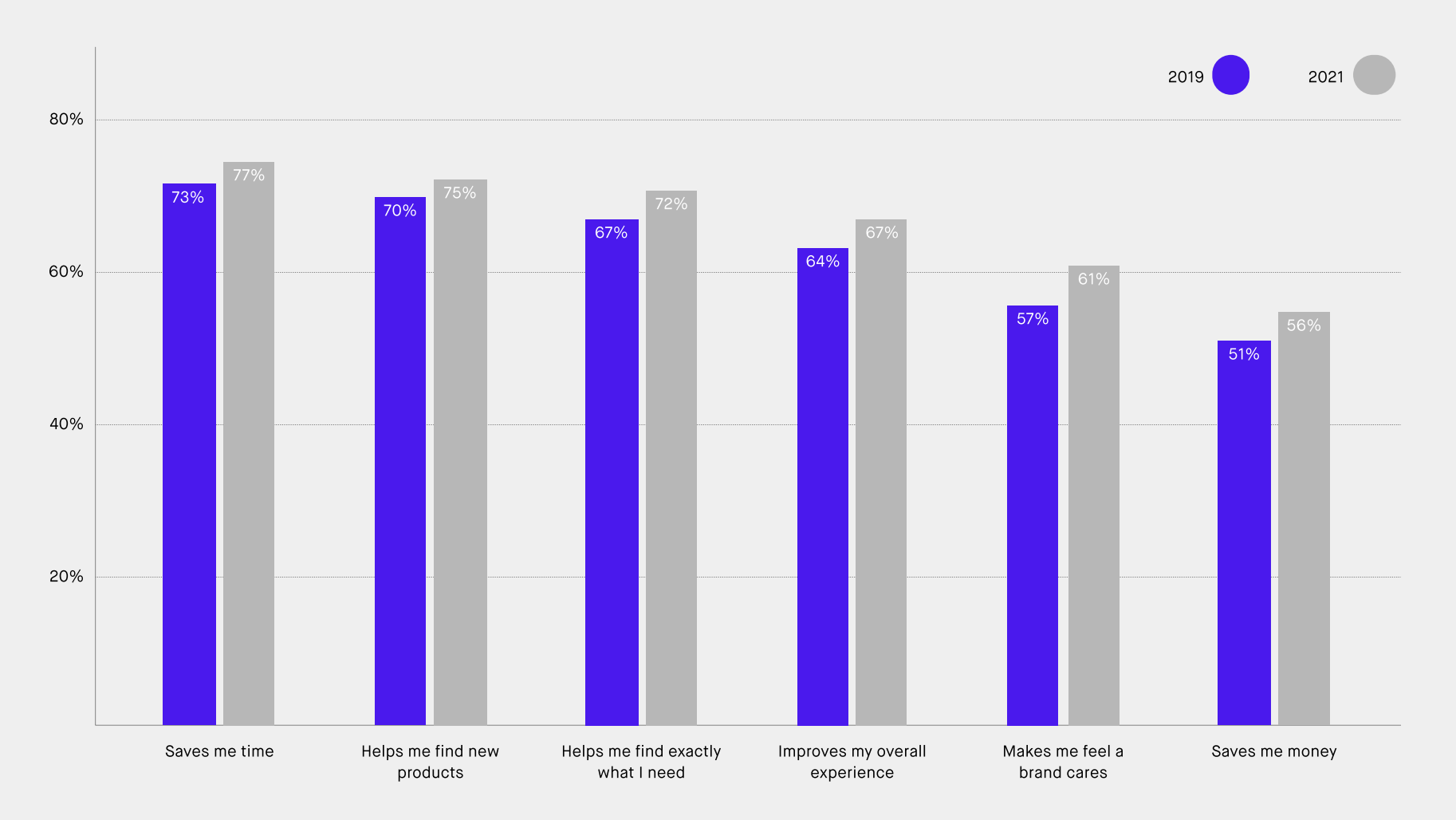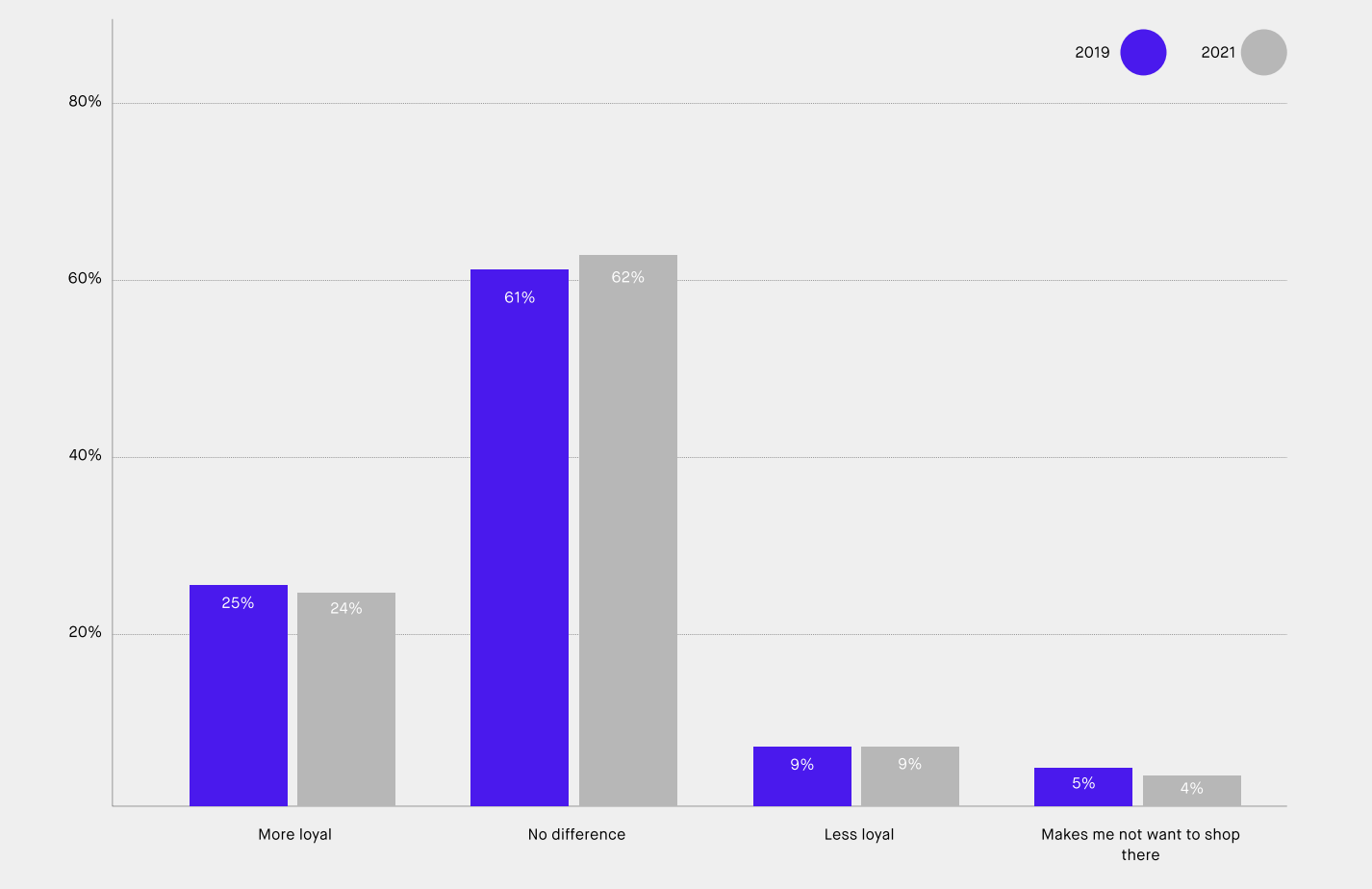Strengthening value exchange through personalisation


Personalisation is a stalwart of e-commerce, playing a key role in retailers’ digital strategies. It has become even more important as a result of the pandemic, with 75% of consumers trying new store websites and brands during the crisis, leading them to reconsider brand loyalty of where they shop. With competition drastically increasing overnight, e-commerce brands had to up their personalisation game to effectively engage and convert new and returning customers. But are they hitting the mark? We launched a study to find out.
After uncovering what consumers really thought of personalisation in a 2019 survey, we’ve run the study again to see if opinions have changed over the last two years. We found that consumers value personalisation when it is useful to them, and dislike it when they are overtly being sold to; highlighting the urgency for brands to strengthen the value exchange of their personalisation efforts.
Gathering insights
We gained respondents’ views on why they like personalisation by asking them to rate the advantages and disadvantages on a five-point scale of strongly agree to strongly disagree. Sentiment improved consistently across the board, with more people agreeing or strongly agreeing with positive statements about personalisation in 2021 than they did in 2019.
What consumers like the most has stayed the same, with time saving, helping people find new products, or helping them find exactly what they need securing the top three spots. Notably, the biggest increases came from the ‘strongly agree’ ranking, where there was an average 5% increase in the volume of people strongly agreeing with statements.

Whereas sentiment has improved for the positive associations with personalisation, it has largely stayed the same when it comes to the reasons people dislike it, with some minor fluctuations for individual statements. The top three reasons why people dislike personalisation are that it can be ‘irrelevant’, ‘creepy’ and ‘unsecure’.
Overall, feelings are strong both for and against personalisation. However, positive sentiment is stronger than negative when reviewing these insights holistically, meaning that consumers like and see the benefits of personalisation more than they dislike it. As in 2019, personalisation is still in the domain of being perceived as both good and bad, suggesting that not enough progress is being made by retailers.
Taking inspiration
The days of personalisation being little more than a first name-addressed email and a ‘happy birthday’ discount are long gone. Digital-first businesses are raising the bar and, in turn, customer expectations. Take Spotify as an example, its daily playlist recommendations and annual ‘Spotify Wrapped’ campaign (recently complemented by its ‘Only You’ campaign), deliver a true one-to-one, personalised experience for users.
These activities are built on data, which is applied in a way that creates an engaging experience for users that isn’t at all perceived as ‘creepy’. The campaigns are also delivered without any immediate conversion, strengthening the value exchange as users don’t feel like they’re being sold to, yet we predict that these activities have a huge positive impact on Spotify’s customer loyalty and retention.
Driving customer loyalty
The e-commerce industry is still some way behind the likes of Spotify, with personalisation efforts being largely focused on short term conversion through email marketing and retargeting methods, rather than how it can benefit brand-consumer relationships in the long term. But in order to catch up, focus needs to be switched to creating a strong value exchange through experience which, in turn, will have a positive impact on sales and loyalty.
The opportunity to strengthen the link between personalisation and loyalty has seen minimal progression between 2019 and 2021. Just 24% of participants said that personalisation makes them more loyal, while the majority (62%) said it makes no difference. Meanwhile, 38% believed personalisation was adopted by brands simply to make them spend more money. Another 39% felt it was to make them spend more as well as make them like the brand more.

More attention needs to be given to developing loyalty, specifically how the customer experience can impact loyalty, so that customers feel happy about spending money with a company; because they gain something positive in return.
Lizzie Powell – Strategy Director, DEPT®
Getting to know you
With the majority of negative consumer sentiment for personalisation stemming from a lack of relevancy, greater focus needs to be put on gaining a truer picture and understanding of customers in order to make more relevant recommendations. Asking consumers questions was one of the least common types of personalisation experienced by study participants, yet the vast majority (70%) found it one of the most helpful.
Asking questions or for feedback is one of the most basic tactics that many brands either don’t get right or don’t even touch. But by taking more of an interest in customers, brands are more inclined to know what they want, make more relevant suggestions and improve conversion. Any attempt to gain more in-depth information from consumers should be built into an experience in support of creating a strong value exchange between brand and consumer.
DEPT® worked with Lyst to do just this, creating a campaign that encouraged customers to ‘discover their fashion DNA’ that gave the brand lots of valuable insights to inform personalisation tactics. Using relatable, scenario-led questions in a quiz format, Lyst was able to effectively gather lifestyle-oriented data to generate a better understanding of its users, based on their preferences. As this information was gathered, it was directly linked into Lyst’s existing database of website analytics, paths to purchase, onsite user journeys and favourited products or categories. Adding this new data and filtering results into categories enabled Lyst to formulate well-rounded user personas and frame future marketing campaigns with highly personalised touchpoints. The quiz indulged customers with expert design and interactivity to provide them with insight into how their lifestyle preferences position them on a global scale, a strong value exchange for Lyst to gather user data.
Personalisation provides many benefits for retailers and brands, but it needs to offer consumers true value in order to progress. That’s why the focus of future efforts needs to be shifted towards seamlessly and intuitively guiding customers through a brand journey that makes sense.
Download our report to find out more or get in touch with our experts to learn how DEPT® can help your business accelerate its personalisation strategy and get ahead of competitors.
More Insights?
View all InsightsQuestions?
VP of Growth, Experience and Engineering




